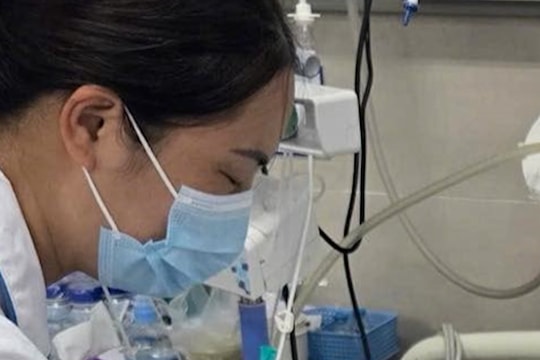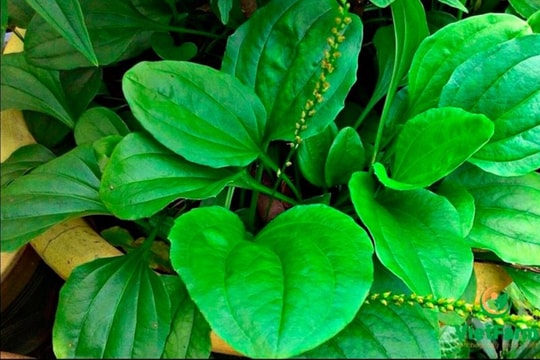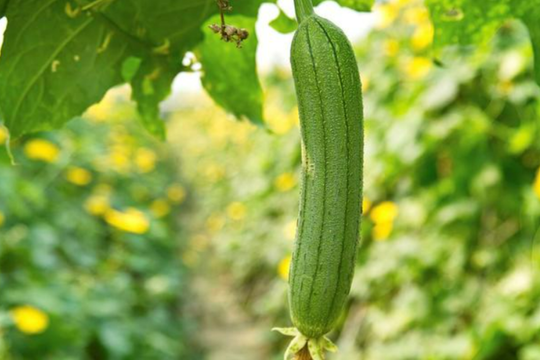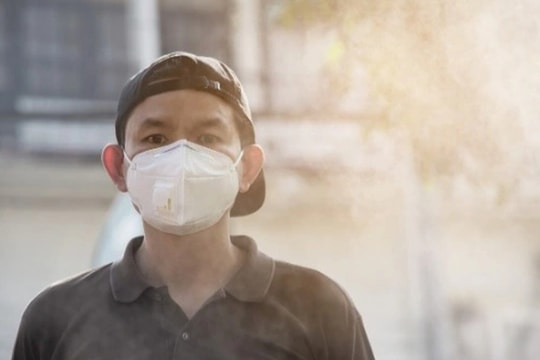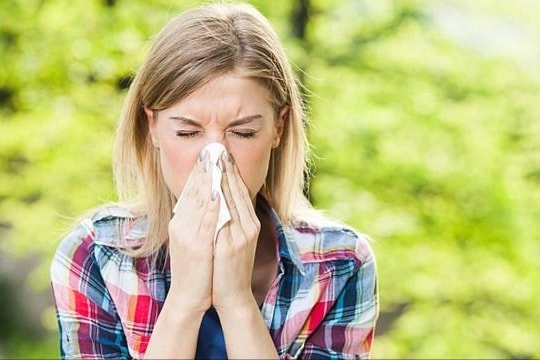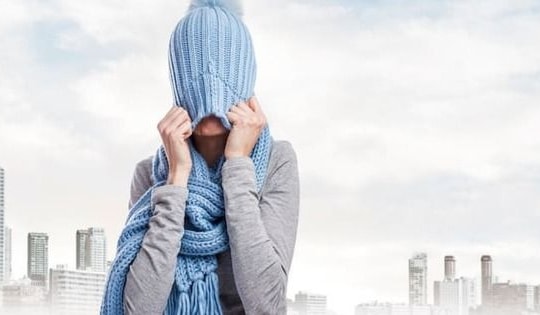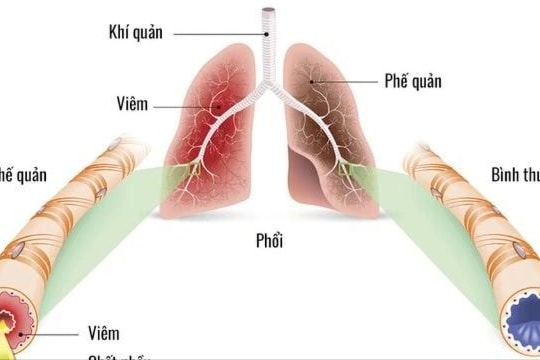Winter disease prevention for the elderly and children
(Baonghean) - Along with the northern provinces, Nghe An enters winter with continuous cold and rainy spells. This is a favorable condition for the emergence of many dangerous epidemics and diseases.
Elderly people pay attention to blood pressure and heart
Doctor Pham Hong Phuong - Head of the Cardiology Department, Provincial General Hospital said: Winter is the season when epidemics often appear, increasing dangerous diseases to human life, especially for the elderly. In the elderly, the most common are high blood pressure and cardiovascular diseases. According to statistics from scientists, about more than 50% of heart attacks in the elderly occur in winter, the rate of elderly deaths due to cardiovascular diseases is highest in December and January, the coldest months of the year.
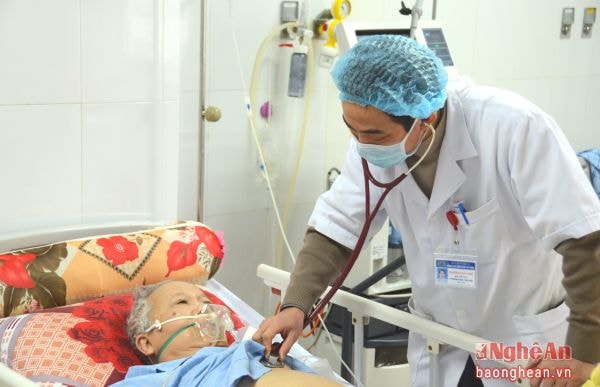 |
| Winter comes, many old people have to go to Friendship General Hospital to treat blood pressure and cardiovascular diseases. |
In principle, blood pressure in winter is usually higher than in summer by about 5mmHg, the continuous maintenance of this increased blood pressure will increase cardiovascular complications by 21%. Aging of the cardiovascular system is the main cause of cardiovascular diseases in the elderly. In the elderly, blood pressure is usually not more than 140/90 mmHg.
When the weather suddenly turns cold, the blood vessels in the body constrict, blood pressure increases, in addition, blood pressure can spike when suddenly going out in the cold or when bathing. If the maximum blood pressure is over 180 mmHg, it is very worrying. Many elderly people have a history of high blood pressure, then blood pressure will increase sharply to 200 mmHg, if not detected and treated promptly, it can cause rupture of cerebral blood vessels and death. In particular, people with diabetes are at higher risk of complications of high blood pressure and are prone to sudden, dangerous blood pressure attacks.
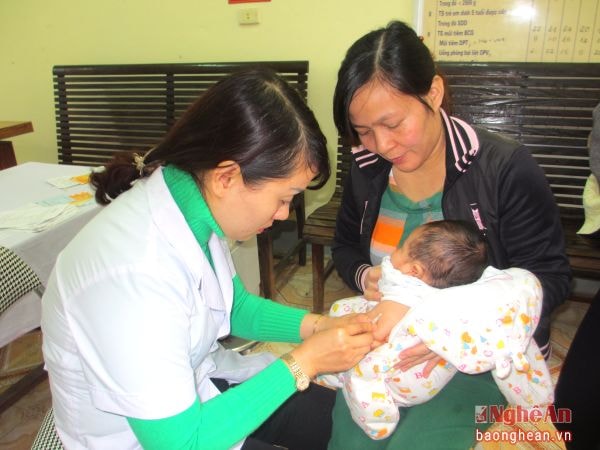 |
| Vaccinate children to prevent winter diseases. |
During the winter, the elderly and their family members need to be more vigilant and take measures to care for and protect their cardiovascular health, especially when the weather turns cold quickly and suddenly. People with cardiovascular disease need to have their blood pressure measured and monitored regularly; they should take blood pressure lowering drugs as prescribed by their doctor.
Antihypertensive drugs need to be taken continuously for life, do not stop taking the drug suddenly; wear enough warm clothes when the weather is cold; limit going out on cold days; when bathing, warm the room with a heater and use warm water; always carry heart medication with you; regularly observe breathing rate late at night, when the body's resistance is reduced to have timely treatment measures; maintain a habit of regular daily exercise; eat enough nutrients; have regular health check-ups; as soon as you see any unusual signs, notify relatives and go to the hospital as soon as possible...
Keep warm, clean and vaccinate children
Statistics of Nghe An Obstetrics and Pediatrics Hospital: From the beginning of December until now, there have been 16,424 pediatric patients coming for examination, of which 2,877 pediatric patients were hospitalized, mainly due to pneumonia, diarrhea, respiratory infections, flu, mumps... Doctor Nguyen Van Son - Head of the Department of Infectious Diseases, Nghe An Obstetrics and Pediatrics Hospital said: At this time, with the sudden change in temperature, the body of adults can adapt, but people with weak immune systems such as children will easily get sick. The mechanism of disease transmission is that in the air, a large amount of bacteria and microorganisms arise and develop, and children can easily get sick when they inhale or come into contact with them.
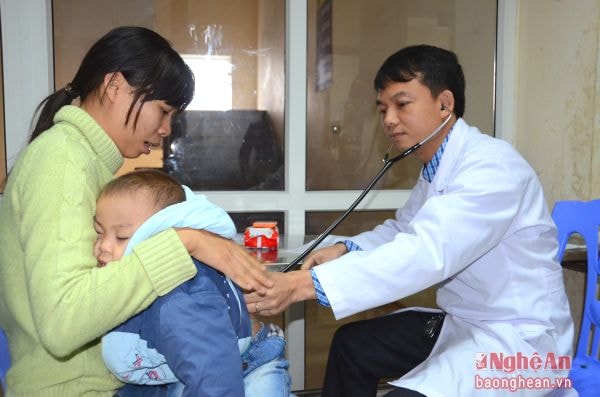 |
| Cold weather causes many children to suffer from respiratory diseases. |
Parents and grandparents need to pay attention to the symptoms of young children to take them to the doctor and get timely treatment. For example, 80% of respiratory infections are caused by viruses. Through observation, children will have symptoms: fever, body aches, cough, runny nose... symptoms that are very common. Normally, parents only need to clean the nose, take fever reducers and pain relievers (if necessary), eat and rest for 3-7 days to recover completely.
For children with weak resistance, the disease will be more severe, leading to complications such as sinusitis, otitis media, especially lower respiratory tract infections. At this time, the child's symptoms will be more severe cough, fever. If the child does not grow teeth and has a fever for 1-2 days and fever-reducing medicine does not help, then you need to go to the hospital. In case the child coughs more, has an increased breathing rate, has a retracted abdomen, and has difficulty breathing, you should also go to the hospital for immediate examination.
To prevent winter diseases for children, parents need to give their children a nutritious diet, increase their water intake, avoid cold foods, practice daily personal hygiene, eat cooked food, drink boiled water, wash hands with soap before eating and after going to the toilet. Children need to be kept warm; wear clothes, socks, and scarves that are warm enough to avoid wearing too many clothes, which will make children sweat a lot and cause pneumonia.
When the temperature is below 10oC should not let children go out. At night, when sleeping, many children have the habit of kicking the blanket out, so parents should pay attention to cover them with warm blankets. If the family has the conditions, they should use warm air conditioning with reasonable mode.
Most importantly, parents need to proactively prevent and fight epidemics by vaccinating their children against measles, mumps, encephalitis, etc. When detecting an illness, do not self-treat at home, but take the child immediately to a medical facility for timely examination and treatment to avoid spreading to the community.
Thanh Hoa - Thanh Chung
| RELATED NEWS |
|---|

